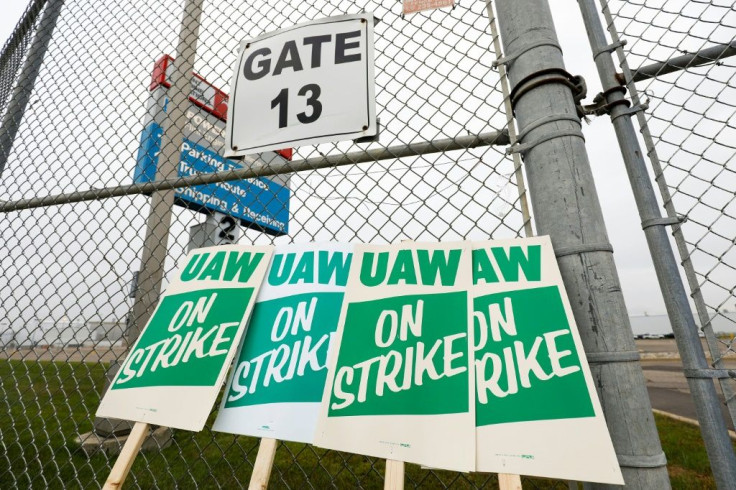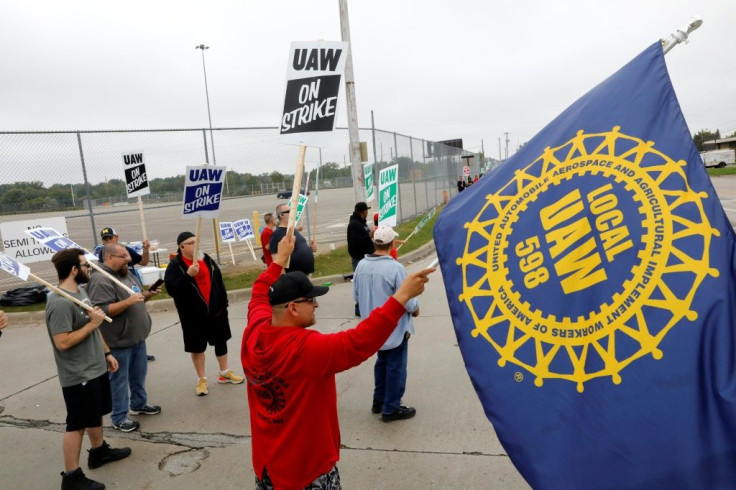GM Strike Costs Company $100 Million A Day In Lost Production

General Motors Company (GM) might only suffer "nominal" damage from the ongoing strike by 50,000 of its employees if the collective action doesn’t head into next week. This despite the strike costing GM more than $100 million a day.
Analysts point out GM, which has seen strong sales growth the past few years, has enough cash on hand to ride-out a short-term strike. GM dealers have enough vehicles in stock -- but only for a week. If the strike continues into next week, investors will start becoming antsier, potentially dragging down shares of the company on Wall Street.
The company's last major strike, in September 2007, lasted only two days but involved more than 73,000 employees.
Analysts estimate the current strike is costing GM anywhere from $50 million to $100 million per day in lost production. Some analysts believe a prolonged strike will take out 10 cents off GM’s earnings per share during the third quarter. It's in GM's best interests the strike be resolved quickly, ideally as fast as the 2007 strike.
“From a bottom line standpoint, the impact could potentially be nominal if the strike is resolved quickly; yet, the longer it lasts, the more it will be felt in GM’s earnings profile,” according to Credit Suisse’s Dan Levy.
Moody’s Investors Service also believes the shorter the strike, the better for GM. It said beyond one or two weeks, "the financial burden of a strike will become more material and the prospects of a contract that avoids erosion of the company’s current competitive position is less likely.”
Moody's described the strike as “credit-negative for the company.”
GM still refuses to comment on the impact of the strike will have on its operations and bottom line.
“Contract talks are ongoing,” the company said in a statement. “Our goal remains to reach an agreement that builds a stronger future for our employees and our business.”
The strike at the country’s fourth largest car maker began Monday and shut down 31 GM plants across the country. The strike is aimed at protecting jobs and securing better pay and benefits.

Leaders of the powerful United Autoworkers Union (UAW), which represents the strikers, said the union and management continue to disagree on practically all the issues at stake.
"We have to find common ground on 98 percent of the remaining issues," said UAW spokesman Brian Rothenberg. He also believes the strike "can take a little while longer" because both sides have only come to terms on a mere two percent of the issues at hand.
Other UAW officials said both sides remained far apart on wages, healthcare benefits, job security and the status of temporary workers.
Key issues in the negotiations are protecting jobs and saving GM plants scheduled for shut down in 2020. In November 2018, GM announced the closure of five plants in the U.S. and Canada. Affected are plants in Michigan and Ohio "unallocated" for production.
"This is our last resort," said Terry Dittes, UAW lead negotiator with GM on Sunday. "We are standing-up for the fundamental rights of working people in this country."
Ted Krumm, chair of the UAW's national bargaining committee, said UAW members have spoken.
"We have taken action and this is a decision we did not make lightly. We are standing up for what is right," said Krumm.
© Copyright IBTimes 2024. All rights reserved.




















